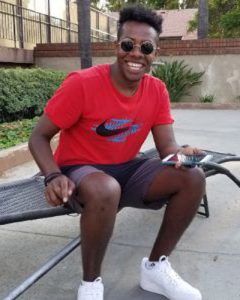Shared with permission from MTF Biologics

Werkneh Ourga’s story is far from ordinary. While most little boys spend their days on playgrounds and soccer fields, Werkneh’s youth was spent in hospital beds in Ethiopia. At the age of six, Werkneh developed Ollier’s disease, a skeletal disorder that caused enchondromas – non-cancerous, cartilaginous tumors that grew on both of his hands, making it impossible for him to function. “My hands grew to the size of soccer balls, and it felt like I was carrying around a heavy rock or a small baby,” Werkneh shares.
The impact of these tumors was far beyond the physical. In the small village where Werkneh grew up, deformities were associated with demon possession and often looked down upon. Consequently, Werkneh was not able to attend school as a child. Even though he was completely shut out of society, Werkneh remained positive. “Even in pain, I was smiling. That’s one thing I always do—smile,” He shares, “I try my best to spread joy and happiness.” Eventually, Werkneh was dropped off at an orphanage for sick children. Due to Ethiopia’s lack of resources, Werkneh’s only option was limb amputation. While amputation recovery is feasible in the United States, surviving the surgery in Werkneh’s small village was almost impossible, and he would have died.
While at the orphanage, Werkneh was introduced to a group of physicians that were determined to turn his life around. They connected him with Dr. David Kulber, a plastic surgeon and orthopedic hand specialist at Cedar Sinai Hospital. With the help of his sponsors, Mending Kids and Ohana One, Werkneh would fly to the U.S. for surgeries and return to a boarding school in Ethiopia over the next few years. Dr. Kulber performed numerous surgeries using donated human tissue and bone to restore his hands to a full function with a normal appearance.
The surgeries and donated tissue enabled Werkneh the opportunity to take full advantage of everything life has to offer. While his hands were functional, the visible scars would still make him an outcast and unsafe to continue living in his country. At the age of 16, Werkneh permanently moved to the U.S. where he was adopted by a family and had a large support system of families who cared for him during his trips to the U.S. as a child. Today he is grateful for his fully functioning hands – he’s won races, participated in school plays, and is currently attending college on a full scholarship. Werkneh shares that he hopes to make a difference in this world. To his donor family, he says, “I really appreciate your generosity. Thank you for giving me hope to change the world.”

Recent Comments